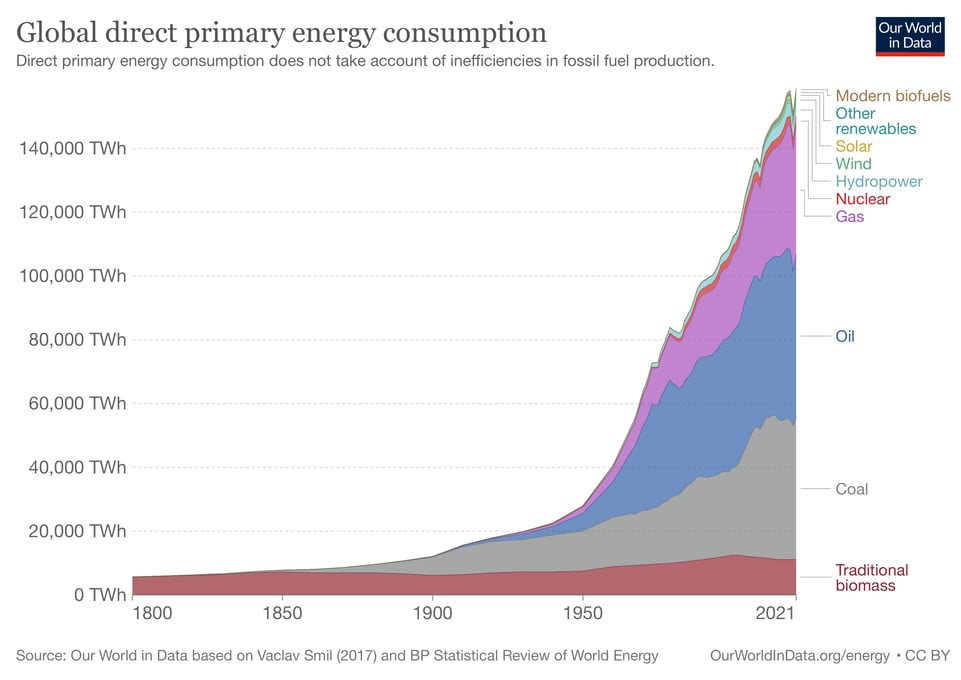Is Carbon Zero Emissions Achievable or a Chimera?
Examining the Global energy Consumption History Chart"


The ubiquitous threat of climate change has made reducing carbon emissions a critical issue.
The concept of "carbon zero" or "net zero" emissions has gained widespread attention, with numerous countries and companies pledging to reach this target, but is it really possible to eliminate all carbon emissions?
In this blog post, we'll delve into the current state of energy consumption and examine whether the idea of carbon zero emissions is attainable.
To understand the challenges we face, it's crucial to recognize that energy consumption has been an integral part of human existence. Throughout history, humans have sought new sources of energy to power their civilizations, from fire to electricity.
Today, we rely on a mix of fossil fuels (oil, coal, and natural gas) and renewable sources (wind, solar, and hydropower) to meet our energy needs.
The chart "Global Primary Direct Energy Consumption" from World in Data provides a comprehensive look at the trend of energy consumption over time.
At a first and shallow sight the image is that fossil fuels have been the dominant source of energy for over 70 years, accounting for the majority of the world's energy consumption.
Renewable energy sources, although growing rapidly in recent years, still only represent a small fraction of the world's energy mix. Considering these trends, it's difficult to see how the goal of carbon zero emissions can be realistic.
The concept of carbon zero emissions may prove to be an illusion upon closer examination. The "Global Primary Direct Energy Consumption" chart highlights a consistent pattern throughout history, that humanity has never fully replaced one energy source with another, but has merely added new sources to supplement the existing ones.
The increasing energy demands of a growing world population, combined with demographic growth, means that energy consumption is only set to continue to increase and totally cutting out a source of energy is pure hope, in the short to medium term is unrealistic.
While we may be able to reduce the carbon intensity of our energy mix, it's unlikely that we will be able to eliminate all carbon emissions.
In conclusion, the idea of carbon zero emissions is commendable, but it's essential to approach it with a realistic view of the current state of energy consumption and technology. With the increasing energy demand of a growing world population and demographic growth, eliminating all carbon emissions is probably not possible right now but it might become in the future. specially if we are able to shift our attention from the macro energy systems we are working with right now to micro energy systems.
Instead of focusing on reducing our energy consumption or cutting down energy sources in the wake of a political agenda we should learn to adapt our actual technology to work in a different way.
Here at Project Sigma we are creating our Energy R&D department to embrace our philosophy and work on moving toward micro energy systems to reduce as much as possible the impact of energy production on our planet.
Help us create our
Energy R&D Program
Our O.GR.E.S (Off Grid Energy Systems) will not only help reduce the impact of our energy consumption on the planet but once developed they will be deployed in Africa and Southeast Asia to supply off Grid energy to schools and hospitals in stranded locations to support local communities.

